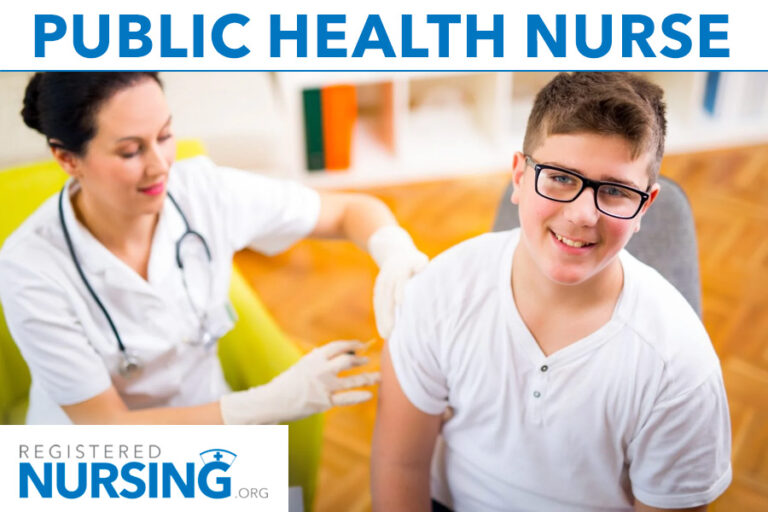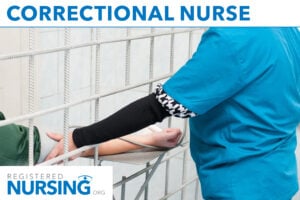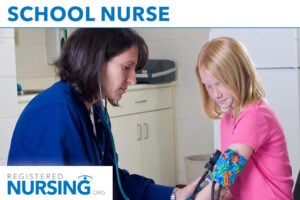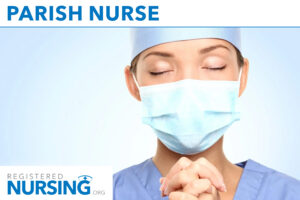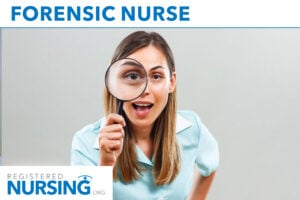What is a Public/Community Health Nurse?
According to the American Public Health Association, public or community health nursing is defined as "…the practice of promoting and protecting the health of populations using knowledge from nursing, social, and public health sciences." Instead of being stationed in a hospital or clinic setting, public health nurses reach out to patients in the community. This allows them to assess their environment, available resources, and potential healthcare needs.
How to Become a Public Health Nurse
Since specific patient populations are the focus of public health nursing, those interested in this specialty should be able to see the “big picture” regarding community health needs. The assessment does not just focus on one patient—it involves the patient, the family, and the home and work environment—any factor that may affect the health of community members. Nurses must have exceptional assessment skills, be able to work independently, have a desire to lead and act as role models, and have a lot of patience.
Additionally, many public health nurses work with underprivileged families, which can be emotionally draining. Public health nurses should be able to emotionally handle difficult cases and have a dedicated support system.
What Are the Schooling Requirements?
Those interested in the specialty of public/community health nursing should first pursue a nursing degree through a two or four-year university. Obtaining an Associate’s Degree in Nursing (ADN) or a Bachelor of Science in Nursing (BSN) from an accredited nursing school is a requirement. However, BSN degrees are recommended for entry-level public health nursing.
Graduates of accredited nursing programs must pass the NCLEX-RN to be eligible for RN licensure.
Master of Science in Nursing (MSN), Doctor of Nursing Practice (DNP), and Doctor of Philosophy (Ph.D.) nurses can advance their public health nursing practice to include leadership roles and research. For example, those involved in research can identify health and disease trends and patterns and study outbreaks to find ways to improve a community’s health.
Consider the following options:
Are Any Certifications or Credentials Needed?
Certification in an area of public/community health nursing is sometimes required. Some BSN nursing programs incorporate public/community health nursing courses within the nursing program. Graduates can then apply for certification through the state nursing board. For nursing programs that do not have a public/community health focus, various educational institutions can fulfill the required curricula. Educational needs are dependent on the applicant’s academic background. The basic required coursework should include the following:
- Community health nursing
- Family-centered care
- Multicultural nursing care
- Nursing assessment
Nurses interested in public health certification should contact their state's Board of Nursing to verify the requirements.
The American Nurses Credentialing Center (ANCC) at one time offered an Advanced Public Health Nurse-Board Certified (PHNA-BC) credential. However, this certification is now available for renewal only. The ANCC has begun offering a National Healthcare Disaster Certification (NHDP-BC) that may be of interest to public/community health nurses.
Read more for further clarity on public health nurse certifications, or take a look at the table below for some examples:
| Certification | Issuing Organization | Eligibility Requirements | Purpose/Focus |
|---|---|---|---|
| Certified in Public Health (CPH) | National Board of Public Health Examiners (NBPHE) | Graduate-level education in public health or significant work experience | General public health knowledge and skills |
| Certified Public Health Nurse (CPHN) | American Nurses Credentialing Center (ANCC) | Active RN license, experience in public/community health | Specialized knowledge in public and community health nursing |
| Certified Community Health Nurse (CCHN) | American Nurses Credentialing Center (ANCC) | Active RN license, experience in community health | Focus on community health and preventive care practices |
| Certified Health Education Specialist (CHES) | National Commission for Health Education Credentialing (NCHEC) | Bachelor's degree in health education or related field | Focus on health education, promotion, and disease prevention |
| Infection Control Certification (CIC) | Certification Board of Infection Control and Epidemiology (CBIC) | Active RN license, work experience in infection control | Focus on infection prevention and control in healthcare settings |
What Does a Public Health Nurse Do?
Public health nurses provide a wide variety of services depending on the place of employment. Specifically, public/community health nurses:
- Provide screening tests for specific populations
- Provide immunizations to adults and children
- Provide nutrition education for various programs, including the WIC (Women, Infants, and Children) program
- Collect data and look for trends/patterns in disease outbreaks
- Educate and treat infectious diseases, including sexually transmitted diseases
- Educate high-risk populations (drug users, prostitutes, etc.) on healthy behavior and disease prevention
- Assist patients and families in psychosocial health to include effective communication, intimate partner violence, and abuse
- Respond and implement interventions in cases of natural disasters or community-wide emergencies
- Administer medications
Where Do Public Health Nurses Work?
Public health nurses provide many services, and therefore can work in a variety of settings. Institutions may include:
- State, county, or city health departments
- Federal health-related organizations
- Private public-health agencies
- Mobile units providing health care services
What Are the Roles & Duties of a Public Health Nurse?
Public health nurses are a crucial part of the healthcare world. Many patients, especially those in underserved, rural, or underprivileged communities do not seek healthcare, or cannot afford to. Public health nurses reach out to educate and treat patients and families in need. Roles may include:
- Assessing psychosocial, mental health, physical, and nutritional needs of a community or population
- Educating on the importance of preventive health and preventive health screening
- Recognizing and intervening in cases of abuse or violence
- Motivating members of the community to adopt healthy behaviors and lifestyles
- Acting as a role model to the community
- Intervening and educating in cases of infectious disease outbreaks
- Utilizing and educating patients on available community resources
- Providing leadership within a community, especially in cases of emergencies
Public Health Nurse Salary & Employment
While there is no official data on the outlook for public/community health nurses specifically, the Bureau of Labor Statistics reports that registered nursing, in general, is expected to grow 6% by 2032. Additionally, opportunities for health educators and community health workers, in general, are expected to grow 7% by 2032. This is promising to nurses interested in the field of public/community health nursing.
The average salary for a public health nurse is $72,382 annually. This figure can vary depending on degrees/certificates held, and city/state of employment.
| Average Yearly Salary | |
| Top 10% of Earners | $87,575 |
| Top 25% of Earners | $80,334 |
| Median | $72,382 |
| Bottom 25% of Earners | $65,427 |
| Bottom 10% of Earners | $59,095 |
Helpful Organizations, Societies, & Agencies
- American Public Health Association
- Association of Public Health Nurses
- Quad Council Coalition of Public Health Nursing Organizations
- National Board of Public Health Examiners

